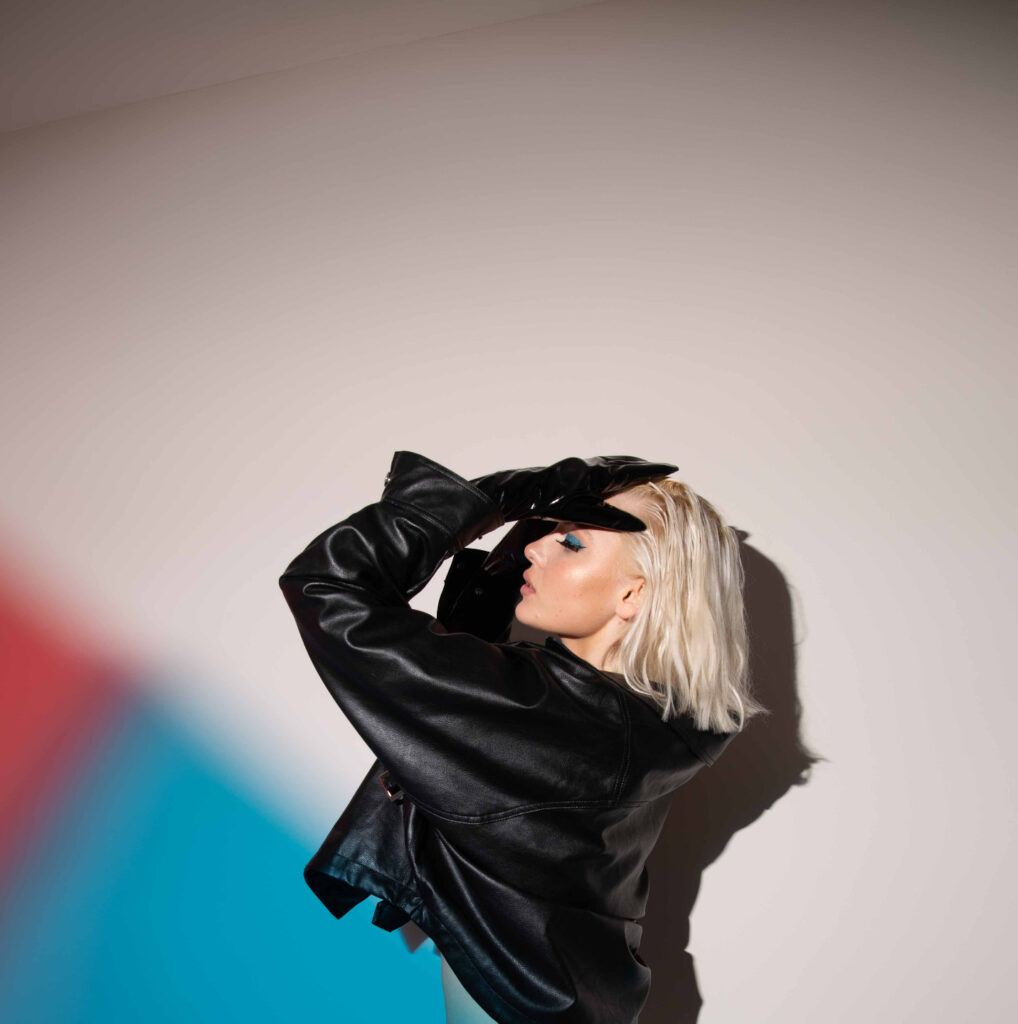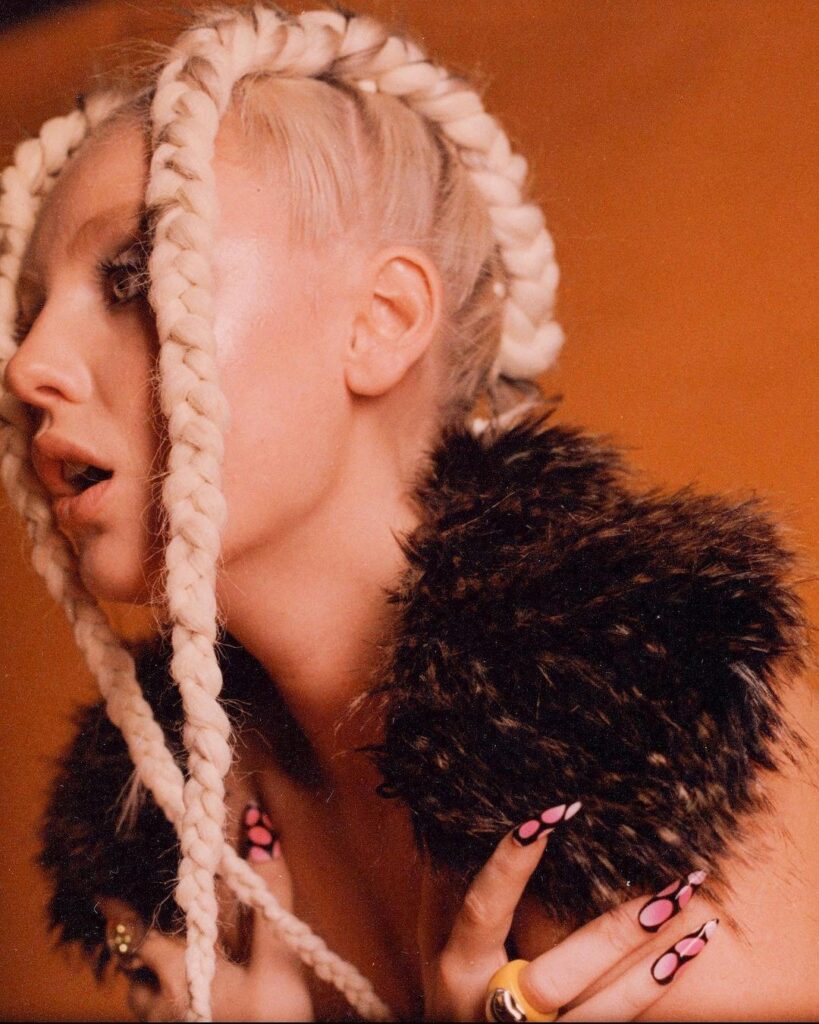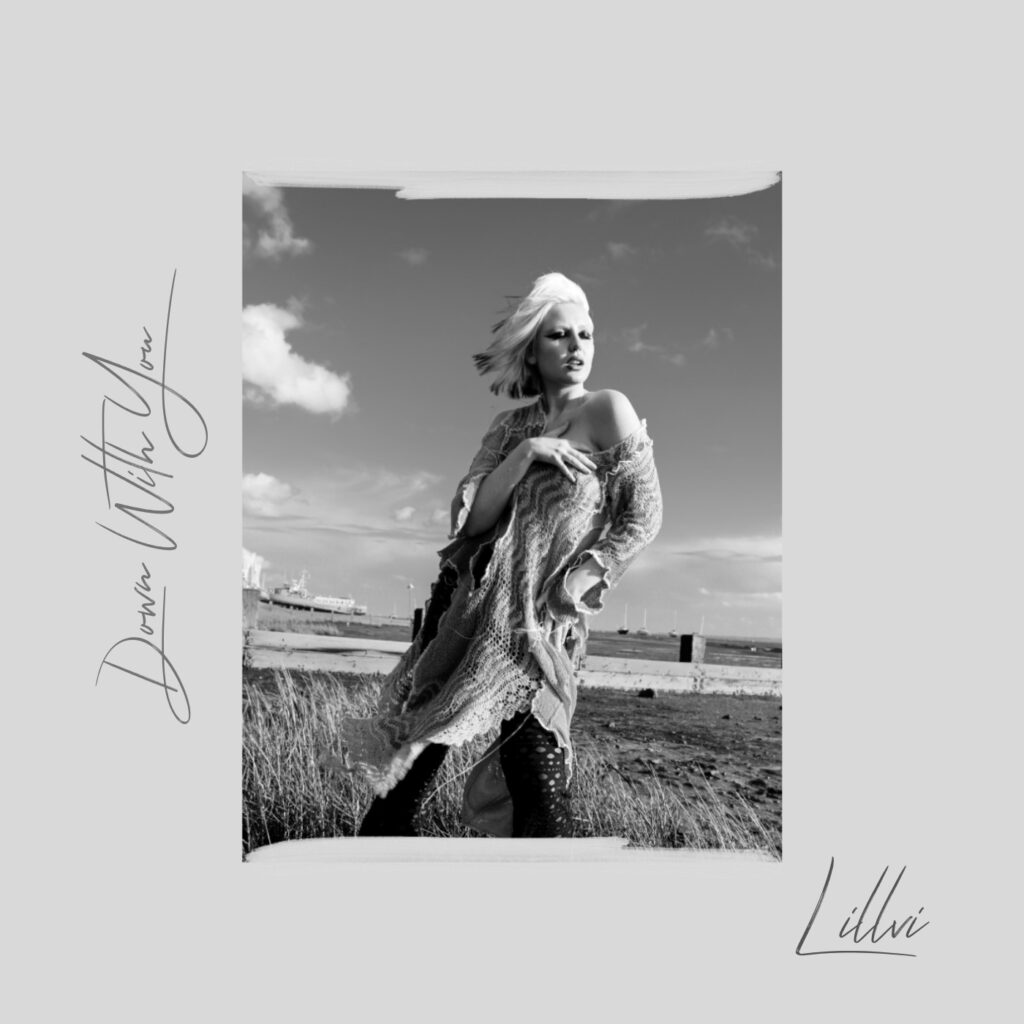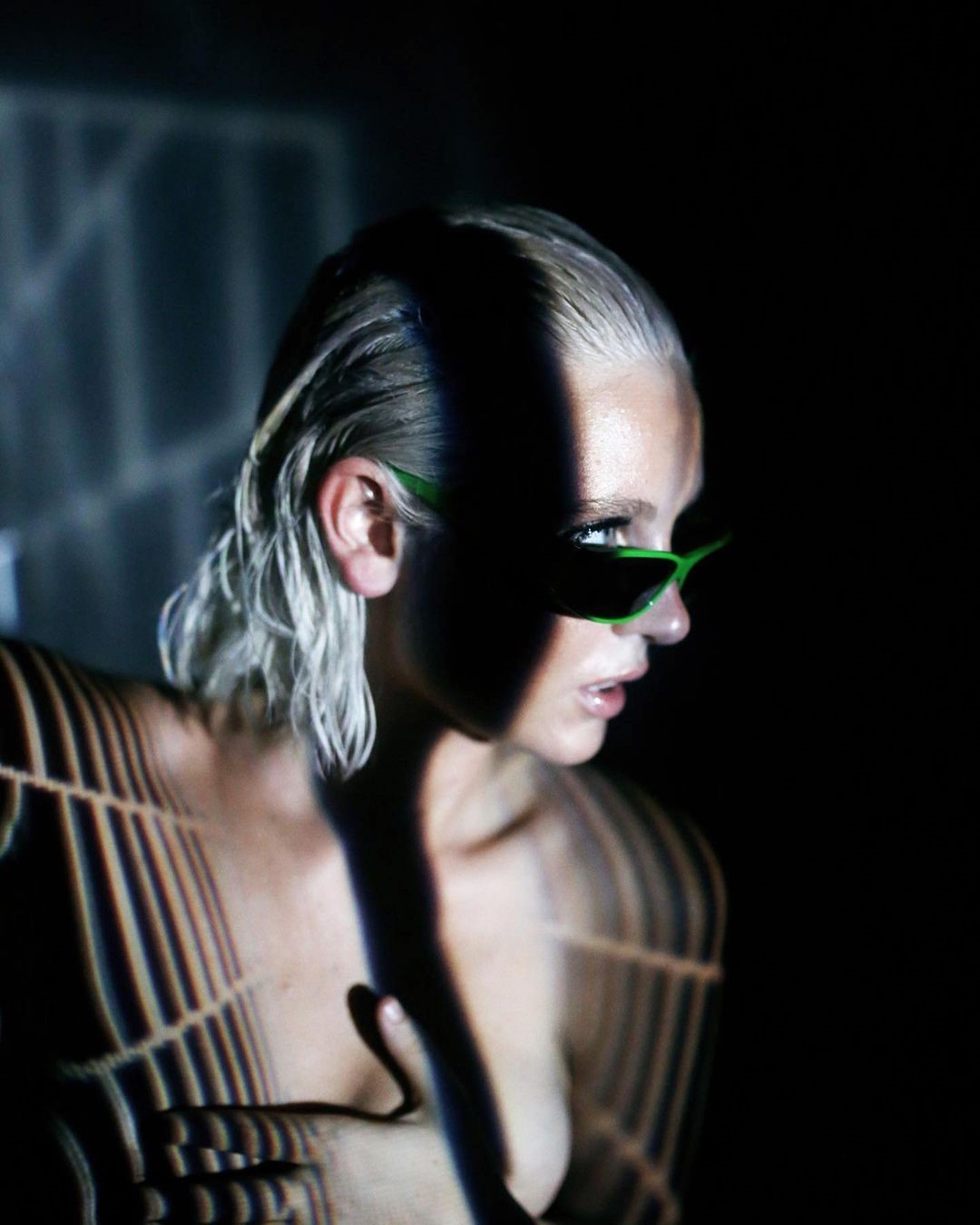Meet Lillvi, the electronic side of singer-songwriter Lillvi Agnarsson inspired by the 1990s. After establishing her alias for only a few years, the UK musician explores the depths of synth pop, 90s influences, and uptempo dance floor music to accentuate imagery and atmosphere by going beyond the boundaries of pop music. “Down With You” is the most current single from her self-released first EP, which incorporates dark and fascinating electronica components for late night drives and popularizes appealing 80s drum rhythms recently utilized by artists such as Weeknd, Lady Gaga, and Dua Lipa.
Lillvi’s most recent release combines the scent of an elusive nightclub with a current perspective on modern electro pop, showcasing her versatility across genres; it is a musical sensory experience. She was born outside of Gothenburg with a passion for singing, dancing, and playing instruments. Robyn ‘Lillvi’ comes from a country renowned for songwriters like as Max Martin, Avicii, and Tove Lo, and she aspires to follow in their footsteps. Her goal is to create universally appealing music while drawing influence from global giants renowned for their outspoken support of the LGBTQ community, such as Lady Gaga, Madonna, Kylie Minogue, and Cindi Lauper. Check out her song Down with you and the exclusive interview below:

1. Can you tell us a bit about where you come from and how it all got started?
LILLVI: I’ve been singing and writing songs since I can remember! I began taking it professionally when I was 15 years old. My first single, “High School Sugar,” was released in 2020 with the producer I’m currently working with. I think I’ve always been artistic, and music just spoke to me! I also grew up in a musical household, so it came naturally to me.
2. Did you have any formal training or are you self-taught?
LILLVI: I started music school when I was a teenager in 2014, but prior to that, I was self-taught. Despite the fact that I grew up in a musical household.
3. Who were your first and strongest musical influences and why the name ‘LILLVI’?
LILLVI: the name ‘LILLVI’? Well, I’d have to say Madonna because she’s such a powerful woman who influenced culture, made a difference with her music and she paved the way for every female in the music industry. Caroline Polecheck, Lana Del Rey, and Tove Lo are some names that come to mind. Because they are excellent songwriters and visual artists. They also have such creative influence over their careers. Lillvi is my genuine name, which my mother gave me at birth, so it just felt natural to use my own name because it’s unique and complements my music.
4. What do you feel are the key elements in your music that should resonate with listeners, and how would you personally describe your sound?
LILLVI: My own voice is pretty unique, and it produces a distinct sound in the songs. The tracks are fairly 90s, 80s pop influenced, with a touch of electronic and scandi pop thrown in for good measure. Also, I believe the songs will appeal to a wider female audience.

5. For most artists, originality is first preceded by a phase of learning and, often, emulating others. What was this like for you? How would you describe your own development as an artist and music maker, and the transition towards your own style, which is known as EDM?
LILLVI:
When I compose music, it’s usually a reflection of my current life stage and environment! It’s only normal for your music to evolve as you do in life! If your most recent song was not your finest, I believe you are doing something incorrectly. I feel I have also listened to new music since I began releasing songs, thus my music taste has changed and I am now influenced by different sorts of music and artists than when I first began. I feel that my music has evolved since I released my debut single in 2020. I’ve become more experimental and confident in my music, as well as more confident in the technical aspects of it.
6. What’s your view on the role and function of music as political, cultural, spiritual, and/or social vehicles – and do you try and affront any of these themes in your work, or are you purely interested in music as an expression of technical artistry, personal narrative, and entertainment?
LILLVI:
As an artist, I believe you should be able to express oneself in a variety of ways, both personal and political. I feel like my lyrics have been really intimate about my own life and personal issues up until now. But I believe that writing songs on social issues will be the next step in my career. I’ve been there, and nothing triggers me more than injustice. Being in such a male-dominated, misogynistic industry as I am, I believe it is critical to express your voice to create a change and ensure that women feel secure in the music and other environments where the line between right and wrong can sometimes be a bit foggy when it is actually quite plain to see. When you’re expressing your truth as a woman in a creative industry, I feel like it’s a political act in itself.
7. Do you feel that your music is giving you back just as much fulfillment as the amount of work you are putting into it or are you expecting something more, or different in the future?
LILLVI:
Yes, I am fortunate to have the ability to make music by writing songs when I am at my happiest. Of course, today’s streaming platforms make it significantly more difficult than it was in the past, making it harder for us music beings to make a living wage. But I shouldn’t complain. I’ve done well for myself as an independent artist, but I can always grow. My ambition is to broaden and take my music as far as possible.
8. Could you describe your creative processes? How do usually start, and go about shaping ideas into a completed song? Do you usually start with a tune, a beat, or a narrative in your head? And do you collaborate with others in this process?
LILLVI:
Every studio session is unique, regardless of where you are, who you are working with, or whether you are working with yourself. Every song develops in its own distinct way. However, because I’m a melodic writer, melody and song are usually first. To be fair, it’s a little bit of everything; I typically have some vibes and narratives plotted out before I get into the studio.
9. What has been the most difficult thing you’ve had to endure in your life or music career so far?
LILLVI: It’s been difficult for me to be taken seriously as an artist and to get people to believe in me. That is how I feel about women in the music industry in general. When it comes to producing and the tech industry, I feel like myself in the studio, and I’m sure many other women can relate. You have the impression that you must prove yourself and work twice as hard as a male in order to be taken seriously. So my answer is sexism in the music industry!
10. Do you think is it important for fans of your music to understand the real story and message driving each of your songs, or do you think everyone should be free to interpret your songs in their own personal way?
LILLVI: I believe it is vital for fans to understand the message, but each to their own; the listener is free to interpret my songs as they see fit; the main thing I hope for is that they enjoy and be moved by what I am saying; if they can relate, that’s a bonus. We need to convey to our fans and listeners that we artists are also human, that we face the same challenges and issues they do, and that we are not superhuman.
KEEP IN TOUCH:

